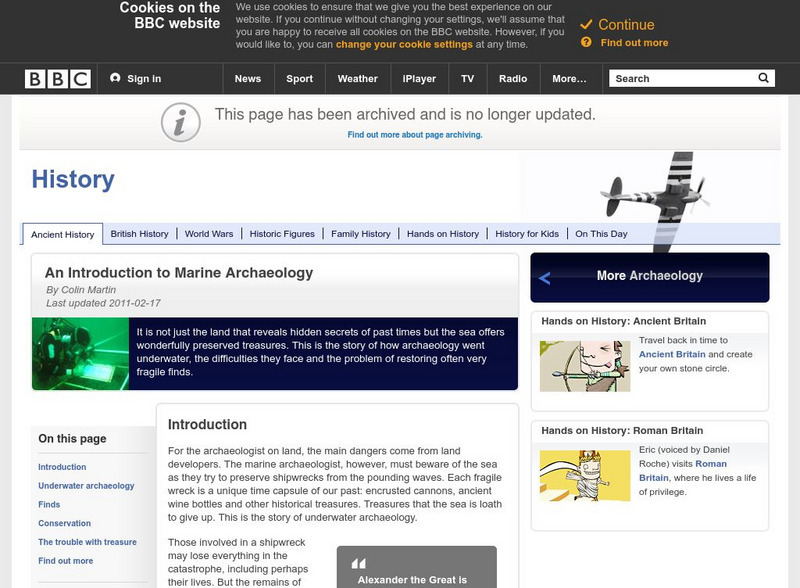Curated OER
Ghostbusting in the Chesapeake
Ghost pots, fishing gear lost during crabbing expeditions, continue to trap crabs that are never collected. Increase your budding ecologists' awareness of human impact on the environment as well as conservation efforts using this...
Curated OER
Importance and History of Ecological Conservation
Discuss and analyze a variety of information regarding the history of ecological conservation and preservation, as well as its importance. Scholars work in groups to complete four different activities, then report back to the class for a...
Curated OER
Where's My Mummy: Preservation Techniques
To observe preservation techniques firsthand, learners dry a flower in sand and compare cucumber slices soaked in salt water for a week with slices left out to dry in the open air. Video resources (not attached) include one about mummies...
Curated OER
Preserving Our Barns
Students examine the different points of view when it comes to preserving barns. Using the internet, they work together to identify the risk involved in renovations and a barn in their local town that needs to be renovated. They create...
Curated OER
Marine Animals: Stranded on the Coast
Students identify marine animals that could become stranded due to coastal features and currents. They plot data on worksheets for locations of sea turtles actually beached or stranded. After plotting their points, they hypothesize...
Curated OER
Kids Conserve? Water Preserved
Sixth graders review the steps of the water cycle. Individually, they calculate the amount of water they use in a day and identify ways they can conserve. As a class, they discuss how conserving water today helps future generations and...
Curated OER
TE Lesson: I've Got Issues!
Students study environmental issues from different perspectives. They look at the issues from the view of both preservationists and conservationists as they identify themselves with one group or the other. They determine how teamwork...
Curated OER
One Kid Can Make A Difference
Students make a pledge to make three positive choices for 30 days and track their progress. In this positive choices lesson plan, students discuss ways in which they can be healthier, protect the environment, be respectful, and more....
Curated OER
Food Preservation
Students examine the variety of food preservation methods available today. In groups, they participate in an experiment to determine the conditions that encourage or stop the growth of bacteria. To end the lessons, they discuss the...
Curated OER
Corrosion/Conservation/Preservation
High schoolers examine the reasons why metal corrodes in regard to metal artifacts. In groups, they discover the affects of salt water on metal and compare the type of corrosion found on iron. They also research the types of metal...
Curated OER
A Geography and Ecology Lesson for Grades 4-7
Students explore many of the unusual geographical features of the Amazon River region, and explain the importance of preserving the tropical rainforest.
Curated OER
Archaeology What Gets Preserved?
Pupils view a video on a culture and list what would be preserved over time. For this investigative lesson students study preservation and what gets preserved in different cultures.
Curated OER
What You Can Do For the Tijuana Estuary
Students discuss how they can be involved in the protection of the Tijuana estuary. In groups, they develop a brochure to share with their community what they can do to save the estuary. They share them with the class and hand them out...
BBC
Bbc: History: An Introduction to Marine Archaeology
A very good introduction to the discipline. Provides details on how it is different from land-based archaeology, how wreck sites are investigated, issues regarding "treasure" wrecks, conservation, and much more.















